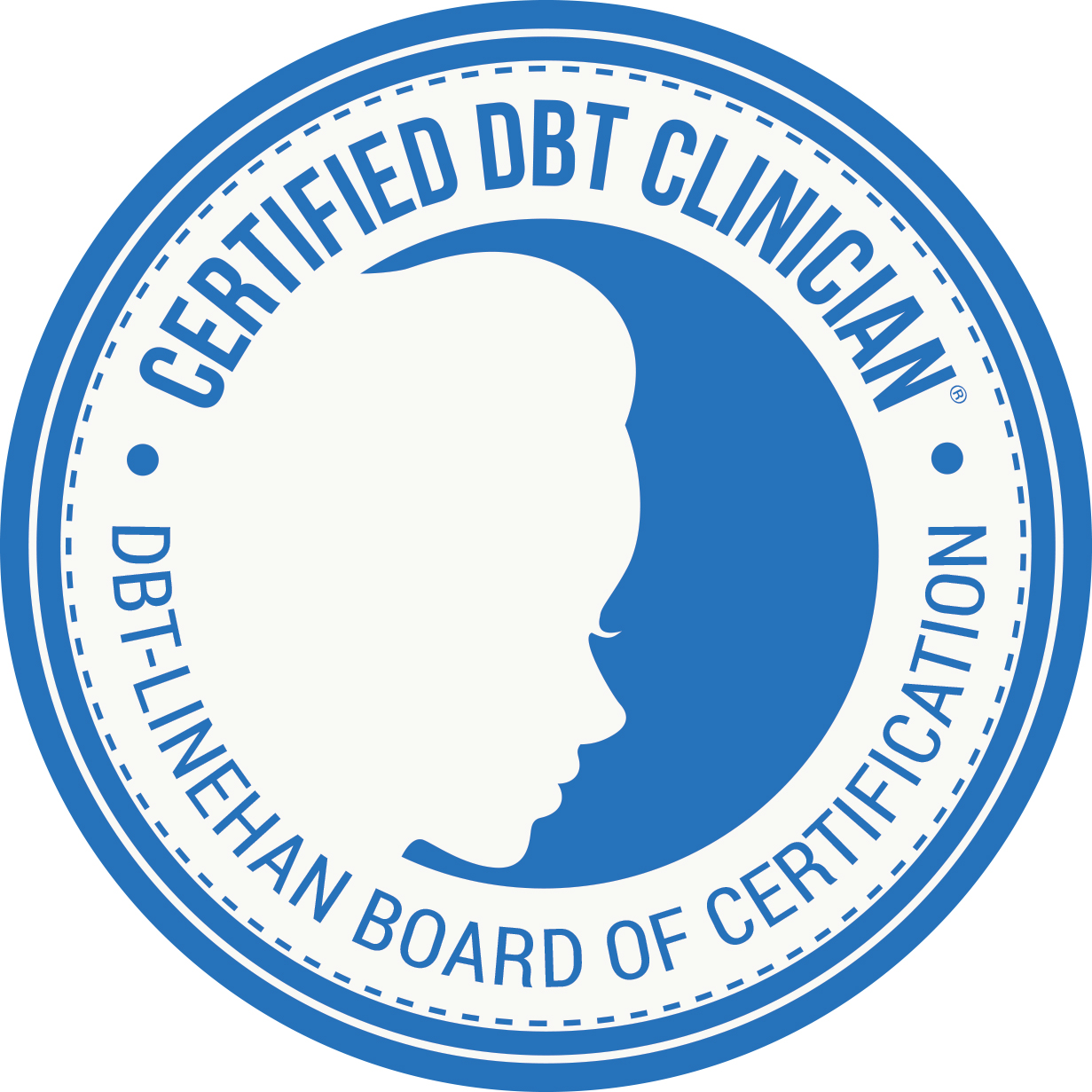Dorian Hunter, PhD (she/her)
I am a clinical psychologist licensed in Washington state and a certified DBT therapist by the DBT-Linehan Board of Certification. I provide a variety of clinical services and enjoy working with adults, couples, and older teens. My passion is helping people who are struggling with intense emotions and behaviors that feel out of their control, and difficulties in relationships. My focus is on implementing and training others to implement evidence-based treatments in the context of a warm, supportive, and empathic human relationship. I approach therapy primarily from behavioral, cognitive-behavioral (CBT), and mindfulness-based perspectives, and have specific expertise in a kind of CBT called Dialectical Behavior Therapy (DBT), for individuals and couples. I also conduct cognitive-behavioral and mindfulness-based interventions for alcohol and other substance use disorders, binge eating, PTSD and other anxiety disorders, and depression.
I believe behaviors occur in context and that context matters. I adhere to a transactional model of understanding how behavior operates in people’s environments. Therefore, my approach with clients is to tailor treatment so that it best fits the needs of the person I’m working with. We would work together to develop a plan for therapy that we both believe will work well for you. It is my hope to create an environment that fosters the development of a powerful therapeutic relationship that fuels and supports the changes you want to make.
In tailoring treatment, I work to be aware of and sensitive to how my background and experiences may be similar or different from my clients, and to engage collaboratively with people from all identities, backgrounds, and cultures. The provision of gender-affirming care and anti-racism in my work are important to me.
Professional Biography:
Dorian Hunter, Ph.D. is a DBT-Linehan Board of Certification Certified Clinician and licensed clinical psychologist in Washington State, as well as a member of the clinical faculty in the Department of Psychology at the University of Washington. She provides continuing education trainings and workshops on Dialectical Behavior Therapy (DBT), mindfulness and mindfulness-based interventions, alcohol and other substance use disorders, and cognitive behavioral therapy (CBT). She trains and provides consultation to DBT teams with Treatment Implementation Collaborative (TIC), teaching individual DBT clinicians and DBT teams around the world hoping to implement DBT, increase their treatment fidelity and competence, and improve clinical skills. She also trains students and fellows within the Greater Seattle DBT Training Consortium, co-directing the DBT training team. Additionally, she provides training and supervision to graduate students via the Marsha M. Linehan DBT clinic housed at the University of Washington in the department of psychology.
Dr. Hunter completed her undergraduate, post-baccalaureate, and post-doctoral training at the University of Washington Behavioral Research and Therapy Clinics (BRTC), under the direction of the DBT treatment developer, Dr. Marsha Linehan. At the BRTC she worked as a research assistant, treatment coordinator, research fellow, and study therapist on multiple studies of DBT, including pilot studies and clinical trials focused on development and evaluation of DBT for clients with suicidal behaviors, alcohol and other substance use disorders, and in multi-family DBT for adolescents and their parents. Dr. Hunter completed her Master and Doctoral degrees at Rutgers University, where she was a National Institute on Alcohol Abuse and Alcoholism (NIAAA) fellow throughout her training. Her graduate work focused primarily on learning and evaluating cognitive behavioral interventions for alcohol and other substance use disorders, particularly through the lens of interpersonal functioning. She additionally completed a clinical post-doctoral fellowship at the Evidence Based Treatment Centers of Seattle, with specialized training in DBT and interventions for anxiety disorders. Dr. Hunter has published book chapters and articles on DBT and other evidence-based interventions and underlying psychological processes related to behavior change.


